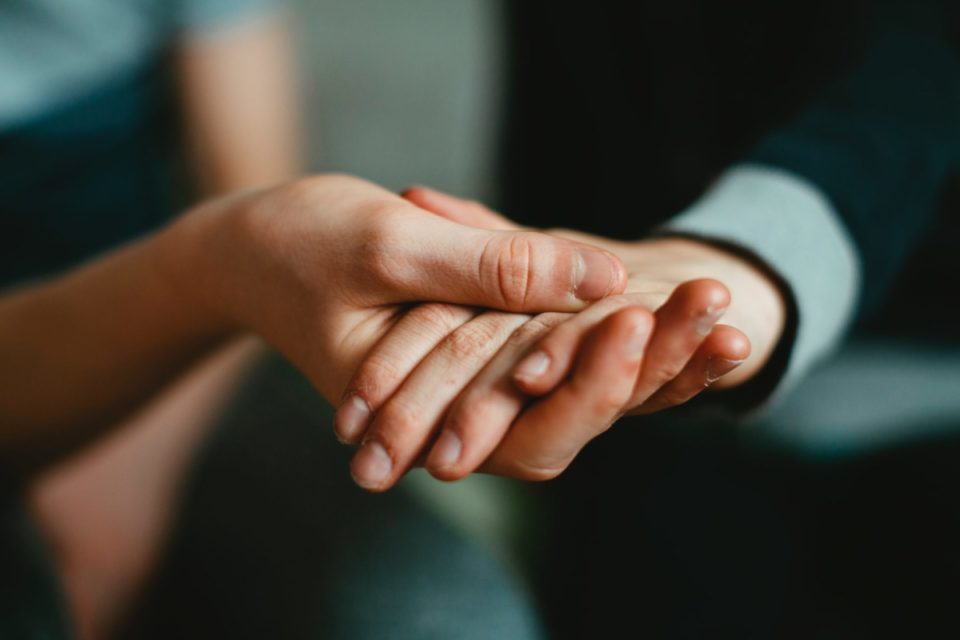December 1, 2022
Is Codependency in Relationships a Good or Bad Thing?
Written by Guest Author
Posted in Relationships, Couples, Marriage and with tags: Relationships, codependency

Codependency is a very tricky trait to understand and identify.
If you don’t look closely enough, you might think that a codependent individual is actually very helpful and a valuable asset to have around. This feeling can lead to an intimate relationship that initially seems wonderful but quickly becomes stifling.
Codependency is a complex issue for both parties. It seems to have pros and cons, which can make it difficult to address in the way that you should.
What is Codependency?
Codependency is a coping mechanism that individuals use to try and find meaning and personal worth in their lives. Codependent individuals have difficulty finding any value in themselves, so they turn exclusively to other people in their lives to get their sense of purpose.
A codependent person feels compelled to assist others, often to the exclusion of their well-being.
In a relationship, the codependent individual will give of themselves to an unhealthy extent because they feel they must make these personal sacrifices to have any type of worth in the world. Unfortunately, their sacrifices never feel like enough.
These people suffer from a severe lack of self-esteem. They often come from neglectful homes in which they felt responsible for caring for a parent or siblings.
Meanwhile, the other individual in the relationship will often fall into a pattern of taking advantage of their codependent partner. It’s common for a codependent individual to get into a relationship with someone addicted to drugs or alcohol.
The addict has a constant need for their codependent partner to attempt to save them, while the codependent partner feels that they must unceasingly battle the trials of loving and caring for someone with an addiction problem.
The Signs of Codependency
Knowing what to look for can help you identify codependency in others and yourself. See if these warning signs apply to either yourself or your partner. A codependent person:
- Lacks boundaries: They consistently assert their will over others. A codependent person might clean and reorganize their partner’s home without invitation or permission because they’re convinced this is the right thing to do, even if their partner doesn’t desire this help.
- Is a people pleaser: Codependent individuals always want to know how they can help. They’ll do whatever seems necessary in a given moment to make others happy.
- Invents excuses to help: A healthy individual will help their friends, family members, and partners when they see a genuine need or receive a request. A codependent person is so desperate to be helpful that they might invent a need, such as cooking meals for someone who would prefer to feed themselves.
- Cares for others obsessively: Codependency makes the individual feel that something terrible will happen if they’re not actively handling all the needs of those around them. They’ll exhaust themselves taking care of others even if those people are capable of caring for themselves.
- Has poor self-esteem and self-image: Codependent people think very little of themselves. They define their self-worth based on their ability to help others, so they internalize anything that goes wrong around them. They’re so consumed with caretaking that they often have little to no self-image of their own: they’re defined entirely by their role as a helper for others.
- Neglect of personal needs: A codependent individual is so consumed with helping others that they’ll neglect their own needs, often failing to take care of themselves or their home for the sake of others.
- Inability to function alone: Though codependent people are extremely capable when they’re helping others, they don’t know how to function independently. They believe they can’t live on their own, although this is rarely the case in terms of competence and personal abilities.
- Inability to accept help: It’s nearly impossible for a codependent person to accept help from anyone else. They’ll never ask for assistance or vocalize their own needs. They believe that the needs of others are the only thing that matters.
Why Codependency Is Unhealthy
Because a codependent individual is often very helpful, this can initially seem like a positive trait. However, codependency is defined as a compulsive need to help others out of a sense of fear. While healthy individuals will help because they want to and see the value in doing so, codependent individuals help because they feel they have no choice. They’re terrified of the outcome if they don’t.
Codependent people are often drawn to those who are very needy. These takers don’t mind accepting the unceasing help that a codependent person offers. They thrive on letting go of their personal responsibilities and leaving their messes for a codependent partner to clean up. The partner may seem like they’re in a good situation because they’re with someone that helps them, while the codependent partner seems content with the situation. However, the reality of codependency is that it is an unhealthy relationship for both partners.
The taker in this relationship often struggles with a drug or alcohol addiction. Because their codependent partner picks up the slack, cares for their hangovers, and helps them continue to function, the taker can continue to indulge in their unhealthy habits with few consequences.
Meanwhile, the codependent partner loses themselves in their role as caretaker and never enjoys a truly fulfilling, balanced partnership.
How to End Codependency in a Relationship
It isn’t easy to fix a codependent relationship. For this reason, many people find it easier to end the relationship and deal with their issues independently.
However, it’s possible to repair a codependent relationship if both parties can admit their role, communicate openly, and seek help. Relationship counseling is a powerful tool for anyone in a codependent relationship, regardless of which role they’re playing.
If you’re in a codependent relationship, a skilled counselor in Houston, Montrose, or Sugar Land can help you find a healthy way to deal with the situation.
A professional will help you identify the issues and come up with an action plan to restore both partners to a healthy state.
Contact our team at Eddins Counseling Group in Houston, Texas to learn more or to get started.
Image by Markus Spiske is licensed with Unsplash License
Posts You Might Also Find Helpful:
Grounding & Self Soothing
Get instant access to your free ebook.



















